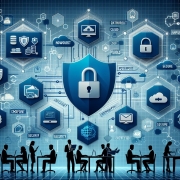Check Point Harmony Endpoint provides advanced threat prevention with centralized management and seamless integration, safeguarding networks through robust security features and real-time threat detection. It excels at ransomware prevention, encryption protection, and detailed threat analysis.



| Type | Title | Date | |
|---|---|---|---|
| Category | Endpoint Protection Platform (EPP) | Aug 20, 2025 | Download |
| Product | Reviews, tips, and advice from real users | Aug 20, 2025 | Download |
| Comparison | Check Point Harmony Endpoint vs Microsoft Defender for Endpoint | Aug 20, 2025 | Download |
| Comparison | Check Point Harmony Endpoint vs CrowdStrike Falcon | Aug 20, 2025 | Download |
| Comparison | Check Point Harmony Endpoint vs SentinelOne Singularity Complete | Aug 20, 2025 | Download |
| Title | Rating | Mindshare | Recommending | |
|---|---|---|---|---|
| CrowdStrike Falcon | 4.3 | 10.5% | 96% | 132 interviewsAdd to research |
| Microsoft Defender for Endpoint | 4.1 | 10.2% | 94% | 197 interviewsAdd to research |
Check Point Harmony Endpoint is renowned for its comprehensive security features, including anti-ransomware capabilities and centralized management. It integrates seamlessly with existing systems, enhancing network protection through features like SandBlast Agent and threat emulation. Organizations benefit from significant incident reductions, utilizing its powerful threat detection, forensics, VPN capabilities, and robust encryption measures. Centralized management during remote work setups and enhanced security through URL filtering and rollback mechanisms further solidify its efficiency. Despite its high resource consumption and configuration challenges, it remains a preferred choice among enterprises aiming to enhance cybersecurity measures.
What Key Features Does Check Point Harmony Endpoint Offer?In sectors such as finance and healthcare, Check Point Harmony Endpoint is crucial for maintaining data security and regulatory compliance. Its features cater to endpoint protection requirements across industries, providing reliable solutions for encryption and cybersecurity challenges. The tool's deployment across diverse environments secures endpoint systems effectively, ensuring uninterrupted operations amid evolving threats.
Check Point Harmony Endpoint was previously known as Check Point Endpoint Security, Endpoint Security, Check Point SandBlast Agent, Check Point Antivirus.
Boston Properties, Independence Care System, Melbourne Convention and Exhibition Centre (MCEC), Courtagen Life Sciences, Carmel Partners